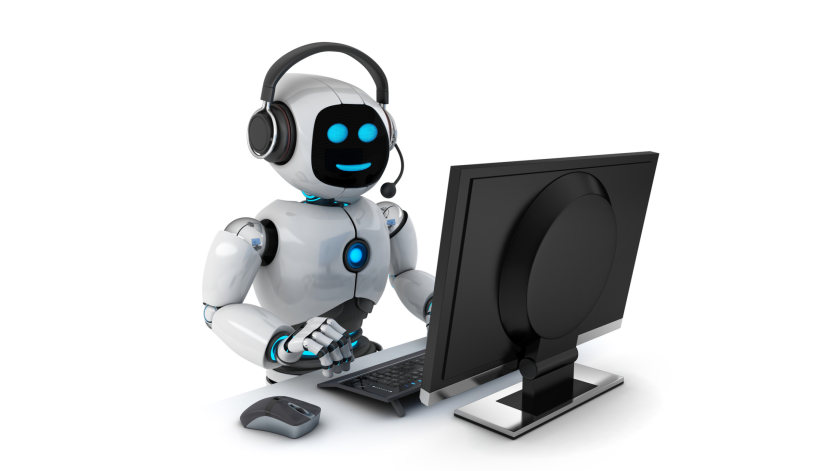Nearly 20 years ago, Will Smith starred in the film, ‘I, Robot’, a sci-fi story of artificial intelligence powered robots taking on public service positions to keep humans safe in a dystopian world.
‘I, Robot’ was set in 2035, but here we are in the real world in 2023 with amazing advances in AI and constant speculation as to what it can do for us right now and what’s likely to be it’s capabilities in the future.
Lets have a look at how the recruitment world might be able to take advantage of AI and also what some of the pitfalls may be.
But first, what is ‘AI’?
Lets keep this really simple. Artificial intelligence (AI) is the ability of a computer or a robot to perform tasks that normally require human intelligence, such as visual perception, speech recognition, decision-making, and translation between languages. For example, you know how you can ask Siri or Alexa questions and they can answer you? That’s because they use AI to understand what you see, hear, or say.
It’s not magic, though. It’s based on science and math. AI works by following rules or instructions that humans give it, or by finding patterns or similarities in data that humans give it. For example, if you want to teach AI to recognise dogs, you need to give it a lot of pictures of dogs and tell it what they are. Then, the AI can learn from those pictures and figure out what makes a dog a dog, like having four legs, fur, and a tail. Then, if you show it a new picture of a dog, it can tell you that it’s a dog.
You may have heard of ChatGPT over the last few months. This is a tool for ‘Generative AI’ which is a type of AI that can create new things, like text, images, or music, based on some input data. It learns from the data and makes new things that are similar but not the same. For example, generative AI can write stories or draw pictures based on your ideas.
An example of the creative powers of AI is this ‘new OASIS album’ which isn’t actually genuine but created using AI. The Beatles are also using AI to help them release an old track which will be genuine but will be using AI to enhance some ropey John Lennon vocals from an old demo tape.
Sure, music is great and all, but this is a recruitment blog, not The NME. What can AI do for recruitment?
Well, it can be used in various ways in the recruitment and onboarding processes, such as:
- Matching candidates to jobs: AI can analyse CVs and Job Descriptions to find the best fit for each position, based on skills, experience, education, and other criteria. This can help reduce hiring bias, improve candidate quality, and speed up the hiring process
- Screening candidates: AI can conduct pre-employment assessments, such as personality tests, cognitive tests, or video interviews, to evaluate candidates’ suitability for the role and the company culture. AI can also provide feedback and insights to recruiters and hiring managers on the candidates’ strengths and weaknesses.
- Scheduling interviews: AI can automate the process of scheduling interviews with candidates, by using natural language processing (NLP) to communicate with them via email, chat, or phone. AI can also send reminders and confirmations to avoid no-shows and rescheduling.
- Generating documents: AI can use NLP to create offer letters, contracts, and other vital documents for new hires, based on templates and data. AI can also verify the documents’ accuracy and validity and ensure that they are signed properly.
- Answering questions: AI can use chatbots or voice assistants to answer common questions from candidates or new hires, such as about the company’s policies, benefits, culture, or procedures. AI can also provide personalised guidance and support to new hires during their onboarding period.
- Onboarding: AI-powered onboarding solutions provide a data-driven approach to recruitment, allowing companies to identify the best candidates for their organisation quickly and accurately. This can help reduce time-to-hire, improve quality of hire, and increase employee retention rates.
So, AI can offer a lot to the recruitment process but is it a panacea for Recruiters and HR professionals?
In a word, no.
As mentioned above, AI is a mathematical model that needs data to train. It can recommend suitable candidates based on a Job Description, but it may overlook those with new or different skills. We need to balance AI with our human choice of nontraditional candidates. Data and analysis can help us understand complex situations, but we shouldn’t ignore our gut instinct, which can sense things that AI can’t measure. Gut instinct is also about looking at the bigger picture, questioning our assumptions and following a ‘hunch’ that a computer won’t do.
The skills required by Recruiters will no doubt change to include incorporating AI into the process. However, the human eye and personal touch will still be needed to recruit most roles.

